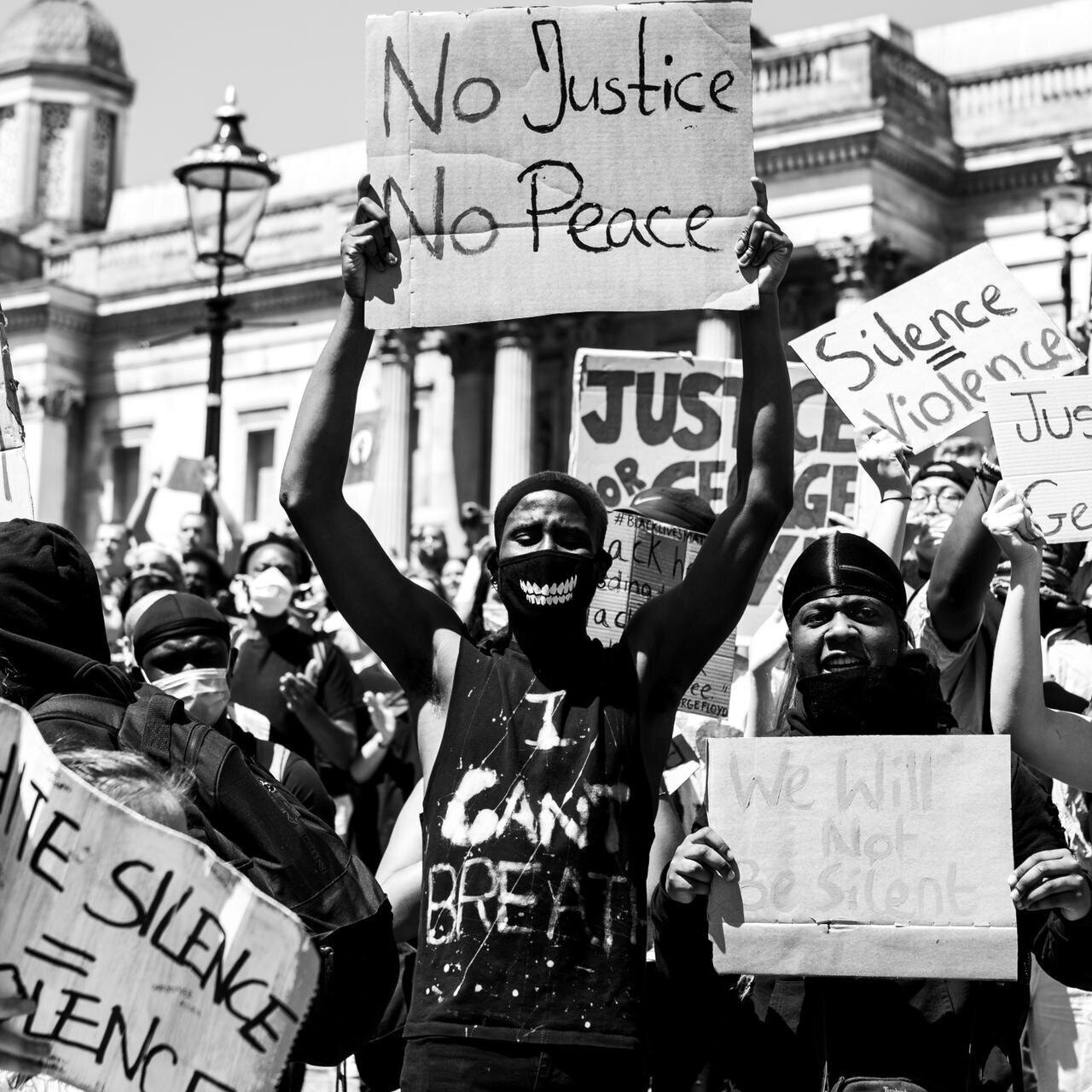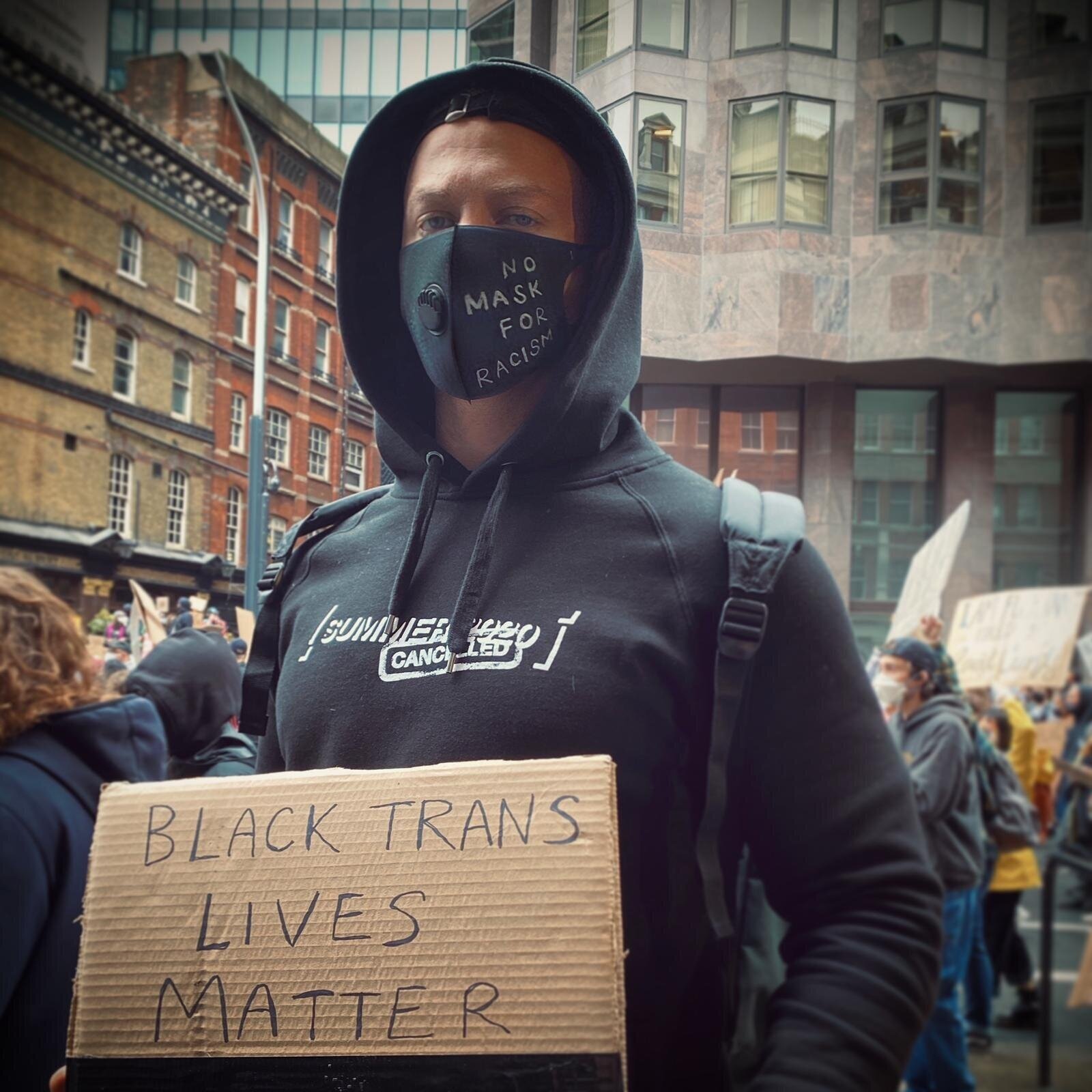Why do you call us "Urban": Race & Identity in UK Music
In the midst of the Coronavirus crisis, that brought our live events industry to a complete standstill – with effectively all music festivals being cancelled this summer – the attention of the world is on a second, more deadly pandemic that has existed for over 450 years.
The inhumane killing of George Floyd, at the hands of four Minneapolis Police officers, shocked us all into seeing first-hand the racial injustices which have plagued America – and the UK – since the slave trade began. His death has sparked passionate demonstrations across the globe, and may just prove the catalyst for real, meaningful change. An injustice that the world has chosen to ignore for too long was brought to light in a sea of black squares, when Instagram came to a halt on Blackout Tuesday earlier this month.
This act of solidarity made it almost impossible for the platform’s 1 billion users to ignore, with some of the world’s biggest companies, brands and celebrities taking part. The idea for Blackout Tuesday originated in the US, with two female employees at Atlantic Records calling for the entire music industry to “pause because the show can’t just go on as our people are being hunted and killed”.
The music industry, like many others, benefits enormously from black culture. If you hadn’t noticed already, all the genres that make up our eclectic line up at Strawberries & Creem Festival are all rooted in, or heavily influenced by, music of black origin. Garage, Grime, Hip Hop, RnB, Dancehall, Afrobeats, Reggae, Soca, Dub, Jungle, UK Funky, Afro-swing, and even DnB, House and Disco all have their origins in black culture in different cities and countries across the world.
For those who don’t know, S&C started as a club night at Fez Club in Cambridge. Its USP was that it offered the university students an alternative to the cheesy pop played at most of the other student nights in the city. We didn’t say it at the time, as we were just playing the music we had grown up with and the tunes that were playing at the clubs in London, Manchester, Leeds and the UK’s other cities – but it was, ultimately, black music. The festival was a progression of the music we were playing in the clubs, which changed over the years but remained rooted firmly in black culture. Despite Cambridge being on average a lot less diverse than the UK as a whole, S&C has been dubbed one of the most diverse festivals around.
This in itself has made it difficult to define what we are. The music industry has often bunched all contemporary UK black music under one genre: whether that be described as Urban, Grime, Rap/R&B or something else. When we first started out, we were always known as “Cambridge’s Grime festival”, because at the time that was the dominant genre in popular culture – fuelled by the meteoric rise of Skepta (our first headliner) in 2015. Since then, we have always been keen to showcase and emphasise the wide variety of our music, but our lineups are often referred to as just “Urban” – a convenient label for the industry, but one that completely obscures the music’s rich diversity and its roots in black culture.
This is an issue across the music business, highlighted well this year by Diddy when he called out the Grammys for not respecting Black Music. Tyler, The Creator has also slammed the Grammys’ 'Urban' category as a politically-correct version of the n-word. Progress has been made in the last few weeks off the back of the Black Lives Matter Movement, as Republic Records urged the rest of the industry to follow them in banning the use of the word ‘Urban’ in describing departments, employee titles and music genres. We want to further that, and remove the word from descriptions of festivals and events like ours as well.
Anyone in the events industry will know the difficulties that can come with putting on shows for specific genres of music, especially black music. These obstacles and prejudices are often worse in London; the legacy of Form 696, which allowed the Met Police to restrict a number of events due to the genre of music and target audience (which in the noughties, basically meant anything to do with Grime or Rap), still provides a barrier to entry for promoters suffering from the effects of years of systemic, institutionalised racism.
Over the years we have faced a number of challenges as a festival – because we are an event playing music of black origin, attract a more diverse crowd than Cambridge is ordinarily used to, and have black members of the team (to name just a few). We will be discussing some of these issues in a new podcast called “The Founders”, in which we will be taking you through the ins and outs of how to run a festival from our own experiences, with some very special guests from across the industry.
We have taken some time out for some reflection on our journey since the start of lockdown. In the last two weeks especially, we have asked ourselves as a company some tough questions to do with race and identity. On many occasions, we have had to play down the “blackness” of the music and culture we champion, for fear of discrimination from the authorities, council, land owners. There is a debate as to whether this would have genuinely impacted our progress, or if we had just been conditioned to act in such a way by the racism inherent in our society today.
We are setting up a community to support young people passionate about music of black origin, looking to break into the events and music industries. Aside from the Association of Independent Festivals, it can often be hard to find any sort of advice. We want to share our experiences and network to help remove some of the barriers to entry into the live event space. Our aim is to provide support and guidance moving forward, with a pathway for young promoters to learn and grow.
We will be discussing this in more detail in our first podcast out next week – so stay tuned for news on that, we’ll keep you posted on our socials! We look forward to involving you all in this important, meaningful and exciting conversation.
Love & unity,
The S&C Team x



